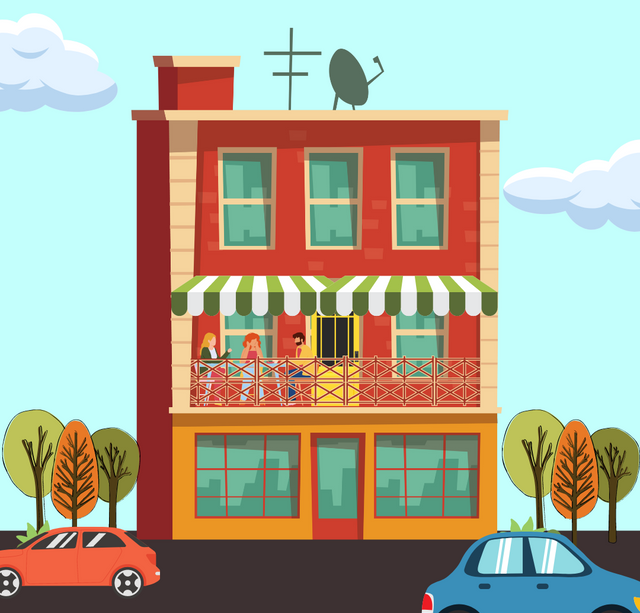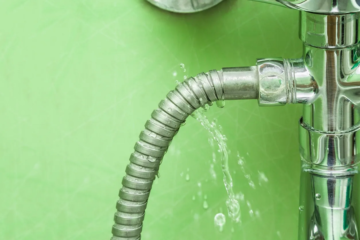Awning & Roofing 101: 10 Practical Maintenance Tips All Newbies Must Know

A beautiful fixed or retractable home awning in Singapore can provide outdoor protection and comfort for decades. But over time, dirt and grime can build up on your roofing, diminishing its appearance and performance. Not only is a worn awning unattractive, but it can also negatively affect the awning’s components and materials, limiting the operation of retractable awning motors and accelerating the decomposition of fabrics and protective coatings.
With routine awning and roofing maintenance, you can prevent premature deterioration and repair expenses, extending the life of your awning and preserving the pristine appearance of your home for longer. Maintenance will not require significant effort. You can easily clean and maintain it by following these tips.
1. Regular cleaning
Regular cleaning is necessary for both durability and performance. You cannot expect the best results if your awning collects dust and grime. You may be wondering how to clean it. It is basic. And to clean your awning in Singapore, you need only mild soap and clean water. Simple cleaning will significantly improve the appearance and durability. Regular cleaning does not necessitate cleaning it once per month. Once or twice per year is sufficient to achieve the desired results. Instead, the method of cleaning will play a significant role. If you choose the incorrect method, you might damage the material. There are various ways to clean awnings.
2. Dry before storing
Improper drying procedures can result in mould issues, fabric damage, and rust on mechanical parts. Consequently, wet awnings should not be rolled up. Give your polycarbonate roofing time to dry before retracting or storing it, whether you just washed it or left it open during a rainstorm. It is crucial for homeowners and businesses who rarely use their awnings.
3. Operate your awning efficiently
Regarding the operation of your awning in Singapore, exercise caution and ensure that all components can function as efficiently as possible together. Before rolling it up, remove any debris that may have accumulated to prevent tears or further damage. If something is wet, let it dry before storing it, and you should avoid overworking the motor or any other mechanisms that aid in operation. There is likely an issue that requires addressing before moving forward if something seems off or forced.
4. Inspect the frame
The majority of awning and roofing setups provide a durable result. However, environmental conditions can affect the durability and performance of a product. Regularly inspecting the frame of your roof for rust and corrosion will ensure that it remains in good condition. Once a month, you can use a broom and brush to clean the underside and exterior of your awning to remove dirt, dust, and any other debris that could cause damage. Regular inspection is necessary for a durable outcome.
5. Check for any tears
People typically believe awnings can last for a lengthy period without maintenance or cleaning. In reality, they do not inspect their roofs for an extended period. The outcome is inevitable. There will be a buildup of grime, which can be detrimental to the frame and materials. If you do not discover tears during the initial inspection, you may wish to replace your awning in Singapore to improve its performance. Consequently, it is essential to inspect the fabric and frame for signs of wear and tear. If you discover any damage, you can immediately repair it.
6. Protect against rain
Water can deteriorate the material and the frame. If you want to use your awning for an extended time, you must first protect it from getting wet. Many roofings have no design to withstand heavy rainfall. When they are exposed to rain regularly, the material will deteriorate. Consequently, it is essential to retract your polycarbonate roofing during the rainy season. It is the best method for making something clean and durable. Roofing can withstand occasional rainfall, but they require proper drying time. Otherwise, it can lead to mildew and cause fabric damage.
7. Choose the right cleaning agent
Awning fabrics are delicate and require special care to maintain their freshness and performance. When cleaning your awning in Singapore, you must use light soap. You must choose the one that can remove dirt without harming the material. You can first test a small area to determine whether the detergent is appropriate for the material.
8. Pressure wash
Many individuals consider using a pressure washer to clean awnings. If you intend to use a pressure washer, you must take extra precautions to safeguard the material. You should use the lowest setting possible to prevent material damage. The use of high water pressure can have negative consequences. The dirt and dust will penetrate the fabric and weaken it internally, reducing its durability. In addition, you should rinse from the bottom up to prevent cleaning solution streaks. Before drying your awning or roofing, thoroughly remove all soap and rinse it.
9. Clean underneath
When cleaning an awning in Singapore, you concentrate on the visible or exterior area. These areas must have adequate cleaning to improve the appearance of your roofing and outdoor living space. However, you should emphasise the underside cleaning for both durability and hygiene. There will be birds, spiders, bees, and other small creatures under the awning. These creatures favour nesting underneath your roofing. Therefore, you should clean underneath to ensure that these insects are not making it their home.
10. After-clean protection
For proper upkeep, you must concentrate on both cleaning and drying. Even if you clean your polycarbonate roofing with the most effective methods, you cannot ensure its durability if you do not dry it properly. Also, you can use a protectant to safeguard your awning from damaging elements. And to prevent stains and water damage, the fabric will be treated with water and UV repellent.

Takeaway
To reduce maintenance and cleaning efforts, homeowners should be proactive in their maintenance practices. Experts advise against leaving retractable outdoor roller blinds open during a storm and against rolling up wet roofings to prevent hazardous and unsightly mildew growth. They recommend routinely trimming overhanging branches and stress the importance of keeping moving parts well-lubricated to stop corrosion and ensure efficient operation.
To order outdoor roller blinds, contact Shadetimes so you can reap the benefits of their services.




